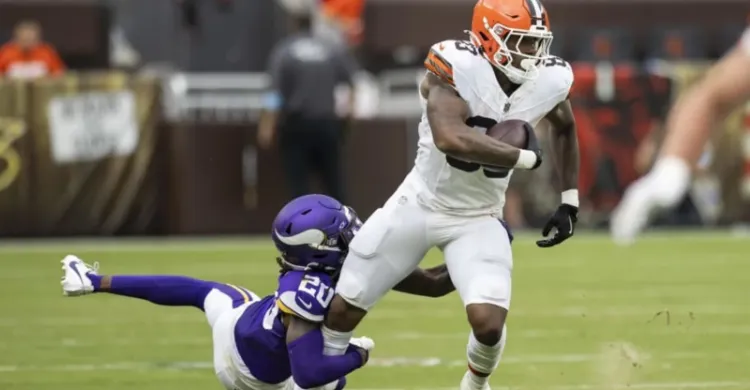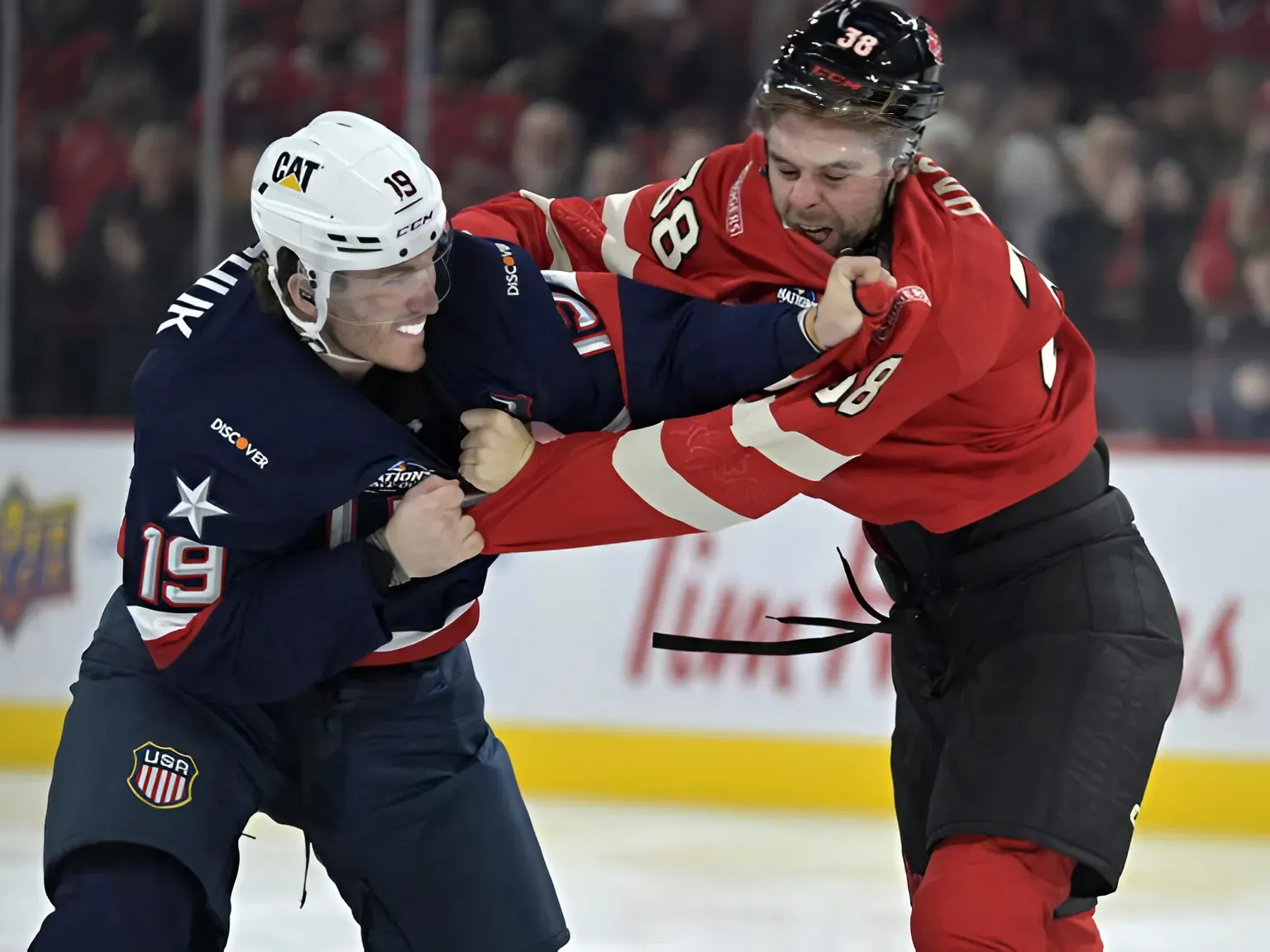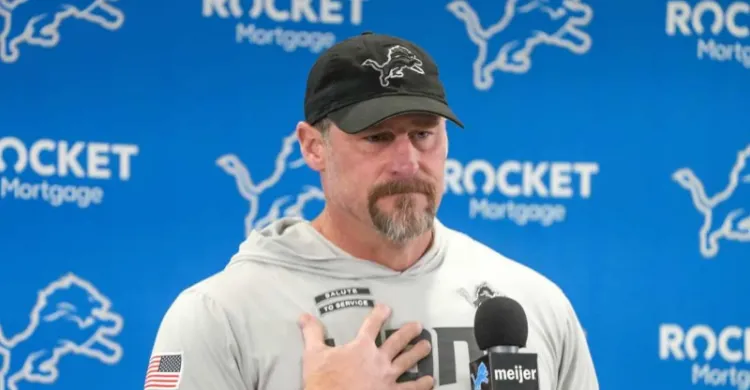Projecting Aaron Rodgers’ required stat line for New York Jets to become champions
The 2024 NFL season is less than three months away and the New York Jets are once again hoping for Aaron Rodgers to take them back to playoffs and beyond.
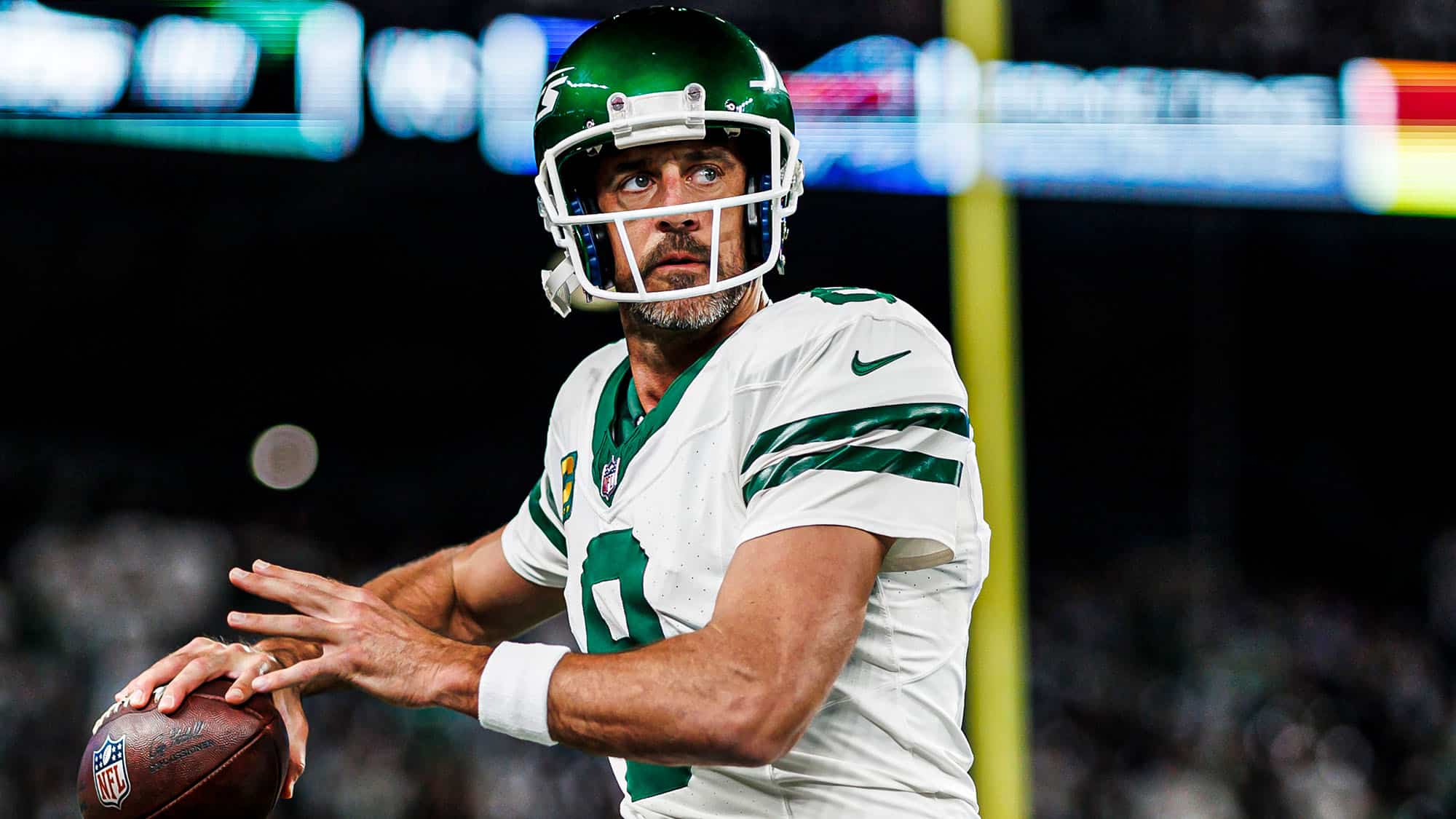
Rodgers has a decorated career with four MVP trophies and one Super Bowl ring. However, he’s 40 years old and coming off a major injury. Is he still the same player who threw for 300 yards and three touchdowns to claim MVP honors in his lone Super Bowl appearance?
That question won’t be answered for several months, but we can answer another now: What do the Jets need from Rodgers to win the Super Bowl?
While the Jets have finished 7-10 in each of the last two seasons, they did this while being severely held back by their quarterback(s). We all know Zach Wilson struggled, but few understand just how badly.
The scale of Wilson’s struggles becomes clear when looking at expected points added (EPA) and completion percentage over expected (CPOE). Among 58 quarterbacks with at least 1,000 snaps since 2015, Wilson is the worst in both categories, and it’s not remotely close.
On the chart, Marcus Mariota is closer to Patrick Mahomes than Wilson is to Mariota. Realistically, a competent backup would’ve had the Jets in playoffs the last two seasons.
But making the playoffs isn’t the goal. It’s the first step in a grueling climb that only 58 teams have completed before.
The Jets feature an elite defense and at least two dynamic playmakers in Breece Hall and Garrett Wilson. That clearly hasn’t been enough in the last two seasons. So, what must Rodgers do to make this team a Super Bowl champion?
Let’s analyze the historical precedent for what a Super Bowl-winning quarterback tends to look like.
What it takes from the QB to win a Super Bowl
58 quarterbacks have won the Super Bowl, and not all of them needed to be dominant to get it done. Steve Young had one of the best performances ever, throwing for 325 yards and six touchdowns, but Ben Roethlisberger won despite throwing for only 123 yards, zero touchdowns, and two interceptions. On the flip side, Tom Brady threw for 505 yards and three touchdowns yet still lost. It’s not all up to the quarterback, but it certainly helps.
We have no clue what to expect from Rodgers at this point. However, by looking at past Super Bowl champions, we can see what’s typically required by the quarterback to win on Super Bowl Sunday. For this exercise, I looked at the last five and the last 15 Super Bowl-winning quarterbacks to see what is required of them.
In the last five Super Bowls, this is the average stat line of the winning quarterback:
257 passing yards
2.6 touchdowns
1.0 interception
69.3% completions
105.0 passer rating
Any of these numbers are foreign concepts to Jets fans. For comparison, here is what the top 32 quarterbacks by passing yards averaged in the 2023 regular season:
230 passing yards
1.4 touchdowns
0.6 interceptions
65.0% completions
91.3 passer rating
The biggest difference is touchdowns, with Super Bowl winners throwing nearly twice as many. The last time a quarterback averaged over 2.6 touchdowns per game in a season was Aaron Rodgers in 2020.
What happens when we extend the sample size? Looking at the last 15 Super Bowls, this is what the winning quarterbacks averaged in the game:
283 passing yards
2.2 touchdowns
0.7 interceptions
68.6% completions
102.0 passer rating
To win a Super Bowl, your quarterback must be capable of at least coming close to these numbers, while also being supported by an elite team.
Peyton Manning provides the minimum requirement, winning despite throwing for 141 yards, zero touchdowns, and one interception. Every other winning quarterback that threw for under 250 yards had at least two touchdowns and zero interceptions to go along with an elite defense. This is the mold that the Jets will need to follow, or they will rely on Rodgers to carry the load. Thankfully, the Jets feature an elite defense and have the pieces to establish a strong run game to support him.
Even if the Jets do need to rely on Rodgers to win, it’s reasonable to believe he can deliver.
Since 2009, Rodgers has averaged:
264 passing yards
2.2 touchdowns
0.4 interceptions
65.5% completions
104.6 passer rating
The Jets can win a Super Bowl even if Rodgers does not play at the level we’ve come to expect of him. His low-risk play style fits perfectly for the role I outlined above. Time will tell if Rodgers will be supported by the team or if he must elevate them.
Xavier Gipson, NY Jets, NFL, New York Jets
